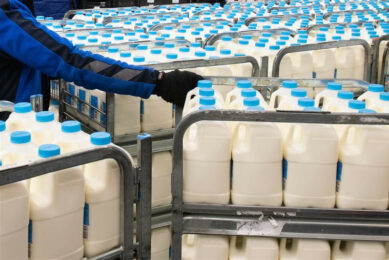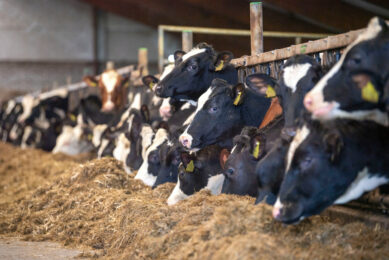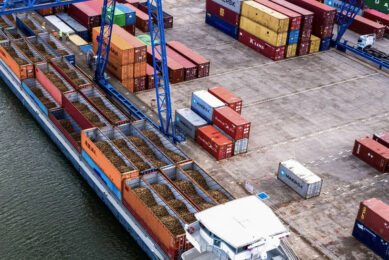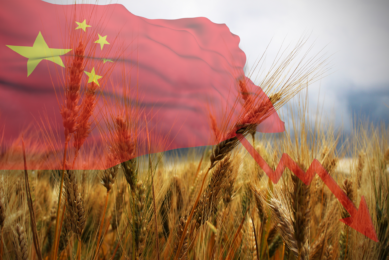Brexit and the milk industry

Dairy Global discusses Brexit and other factors of the milk industry with Dairy UK chief executive Dr Judith Bryans.
The ending of milk quotas in March 2015 hurled the European dairy industry into a period of chaos and uncertainty with many farmers unsure of what the future had in store. Some decided to increase their production to compensate for falling milk prices while others decided to get out of the industry altogether. For the past 2 years dairy farmers have struggled to keep their businesses afloat meeting every new challenge head on.
But then Brexit struck in the UK and the industry became even more volatile once again, particularly for UK and Irish farmers. Dairy UK chief executive Dr Judith Bryans says the removal of milk quotas should enhance the competitiveness and sustainability of milk production in the EU. Dr Bryans also said that Brexit will not fundamentally change milk price trends but she did envisage a short term turbulence in all markets as the new arrangements bed in.
What impact has the removal of the EU milk quota system had on the dairy industry in general across Europe and in UK? Has it been a good move for the EU?
“The ending of EU milk quotas was the final part of a CAP reform package involving the removal of market management measures to make the EU agricultural industry more market oriented. For many EU farmers it provided the opportunity to grow their enterprise for the first time in over 30 years. It was always expected that there would be an initial surge in EU milk production after quotas went but that this growth would moderate after a couple of years. Nobody could predict the timing would coincide with the Russian trade embargo and a slowdown in Chinese dairy imports reducing demand for EU produce just as output started to grow. In addition to this, conditions for production around the world were optimal with no major weather events pulling down production. As a result of all this we have seen depressed dairy markets for a considerable period of time. Markets are now beginning to rebalance as milk production moderates and also as a consequence of considerable intervention buying of skimmed milk powder by the EU Commission. In the long run the removal of quotas should enhance the competitiveness and sustainability of milk production in the EU. Most commentators expect that milk production will grow in those regions best suited to dairying. This should favour the west of the UK including Northern Ireland.”
Milk prices across the world are starting to rise slowly after a long period of volatility in the market. What are the main factors pushing this price rise and do you see it continuing?
“The main factor in the current recovery is the slow-down in production growth due to low prices; the intervention of considerable quantities of skimmed milk powder by the EU Commission has also helped remove surplus output from the market. Production can be expected to recover as prices recover. Dairy market volatility is a global phenomenon; there are also clear cyclical trends. The challenge for farmers is surviving the trough periods and the dairy sector is examining a variety of solutions to mitigate the impact of price volatility and to build resilience amongst farmers.”
With Brexit upon us, how do you see the UK‘s milk production being affected post-Brexit? Can you foresee any dramatic change to milk price in UK once Brexit is triggered?
“Until the UK Government’s and EU’s stance on Britain’s exit negotiations is clear there is too much uncertainty to accurately predict what will happen post Brexit. There are a variety of factors which will determine how UK milk production will be affected including the new trade arrangements with the EU and third party countries, the value of sterling and the UK agricultural policy on farming support. All will have an effect on the global competitiveness of UK farmers and their net returns. Ultimately, like most markets exposed to trade, the UK takes its price trends from the world market. Brexit will not fundamentally change this reality, however there is likely to be short term turbulence in all markets as the new arrangements bed in.”
What are your thoughts on the dairy industry in Ireland in terms of Brexit? Will there be tariffs for cross border dairy trading?
“There is a broad spectrum of possibilities as to how Brexit could be implemented, from maintenance of access to the single market to the UK adopting the EU’s WTO schedule. The outcome will be decided by the UK in negotiation with the EU. Our preference is the greatest possible continuation of existing arrangements and we will be lobbying hard to that end. While Brexit arrangements are important for the whole of the UK and Europe, Ireland and Northern Ireland have particular sensitivities as they share a land border and have considerable cross border trade in raw milk and dairy products. The UK is Ireland’s largest food and drink export market and therefore it will also be looking for sensible post Brexit arrangements.”
Will milk prices be affected north/south following Brexit?
“This clearly depends on the outcome of negotiations with the EU and the prevailing exchange rates. A significant volume of milk from Northern Ireland is exported to the Republic and the impositions of a hard border with tariffs would be disruptive. The UK government has been made fully aware of this issue and the concerns of the industry in Northern Ireland.”
Producer organisations are causing some problems for some dairy companies but have been instrumental in securing a decent milk price to farmers in the past. How do you see the role of producer organisations in the future?
“Milk prices are and should be determined by the market. The primary benefit of producer organisations is in facilitating a stronger dialogue between purchasers and their supplying dairy farmers. We see that properly constituted, producer organisations can have a very positive role to play in the industry.”
Join 13,000+ subscribers
Subscribe to our newsletter to stay updated about all the need-to-know content in the dairy sector, two times a week.











